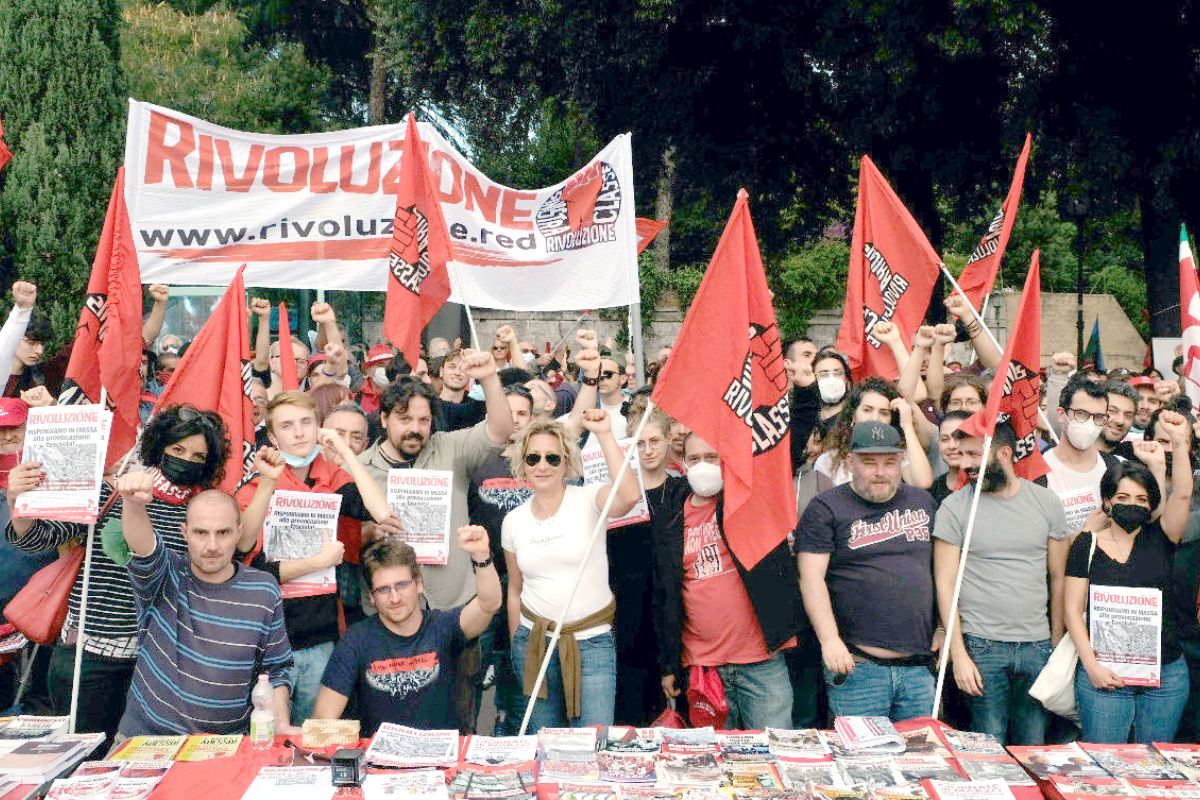The fall of the Draghi government in Italy has resulted in snap elections being called for this weekend, on 25 September.
While panic abounds about the inevitable victory of a right-wing coalition led by Meloni’s ‘Brothers of Italy’ party, the fact is that workers and youth have few illusions that a change at the top will improve their situation.
This is an abridged version that features in the latest issue of Socialist Appeal. Visit marxist.com to read the full-length article.
Disappointment

In the abstract, the elections on Sunday should be attracting a lot of attention. Instead, these will likely see the lowest turnout in electoral history.
According to a recent poll, one-in-three Italians is not following the electoral campaign ‘at all’. 18 percent follow it ‘a little’, 27 percent ‘in part’ and only 22 percent follow it ‘closely’. Among young people, the polls predict an abstention rate of 55 percent.
This data should not be confused with a lack of interest in politics in the broad sense. On the contrary, today it is almost impossible to have a conversation without ending up talking about politics.
However, the mass of working people are also becoming aware that current political institutions are unable to solve their problems, and therefore there has been a profound detachment from institutional politics.
They are seen as mere theatrics, where a privileged political elite says black today and white tomorrow, ready to change their political colours overnight with the sole intent of preserving their personal careers in the service of the ruling class.
It is a feeling that has accumulated over time, strengthening from crisis to crisis, from disappointment to disappointment.
Upheavals
The general elections of 2018 were the last occasion in which the masses used their votes to punish the mainstream political parties through the channels of parliamentary democracy, with an avalanche of votes for the Five Stars Movement (M5S), and to a lesser extent for the League (Lega).
In the following four years the M5S was absorbed into the discredited swamp of mainstream politics, in a process that provided a healthy degree of clarification for the masses.
Today, the same sentiment, of rejecting the political establishment, is being expressed in declining participation in elections, deepened by the upheavals of recent years (pandemic, war, inflation). There are no parties within the electoral system that arouse any real hope of change.
Opinion polls and election results should be read in this context. The likely victory of the right-wing coalition, and in particular of the Brothers of Italy, does not represent a reactionary turn within the people as a whole.
Rather, it is an electoral shift towards the only option that has visibly remained in opposition to previous governments, in an era in which anyone who governs according to the rules of the capitalist system can only ask for sacrifices from the workers, and therefore quickly loses support.
Attacks
If elections were all that mattered, this scenario would indeed be disconcerting. But the electoral field is only one on which the class struggle is expressed, and not even the main one.
The economic situation we are heading towards is catastrophic. The cut in energy supplies will have dramatic consequences on the living conditions of millions of workers.
All this while inflation continues to rise. The cost of living for the average family grew by 9.4 percent in July on an annualised basis. Put simply, it is becoming impossible to make ends meet.
We have to ask ourselves: what will be the effect of a right-wing government in such an economic and social scenario?
The programme of the right-wing coalition will clearly be to shift wealth even more towards the privileged layers of society, with attacks on workers’ incomes, attacks on trade union rights, further job insecurity, and cuts in education and healthcare, all in favour of private companies.
And all of this will be accompanied by reactionary provocations of all kinds: racism, sexism, homophobia, police repression, etc.
Explosions

This combination of economic and political factors is inevitably preparing an unprecedented social explosion in our country.
Blocked on the electoral front, the workers will be forced to take to the field of direct mobilisation – with strikes and protests – to defend their living conditions.
Mass explosive mobilisations of the youth against reactionary provocations, on issues that have already mobilised them in recent years, are implicit in the situation.
The opulence that has been accumulated at the top of society is a further provocation, so much so that even the government has had to denounce so-called ‘super-profits’. There comes a point where workers say ‘enough is enough’.
The present sense of frustration, the lack of any point of reference, the gloomy outlook for the future, the detachment of the masses from institutional politics will all turn into their opposite, in the eruption of collective and direct action.
The swamp will be swept away by the entry on the scene by the youth and the working class.






